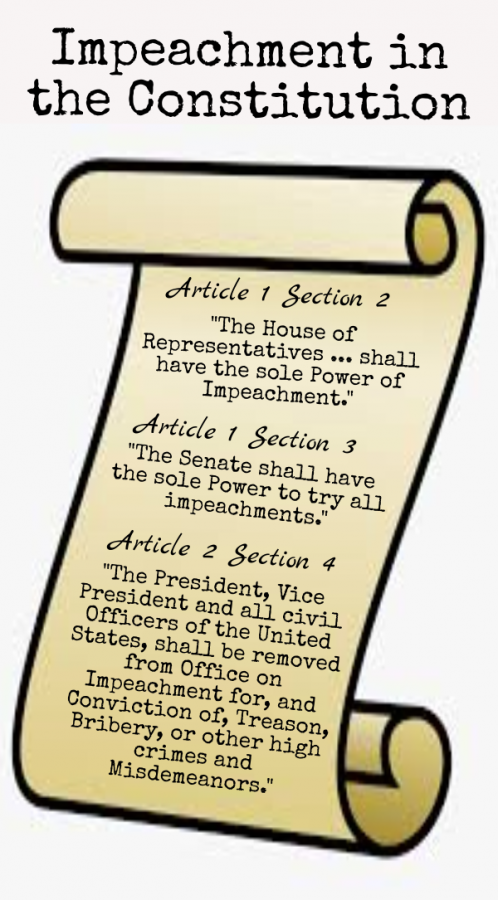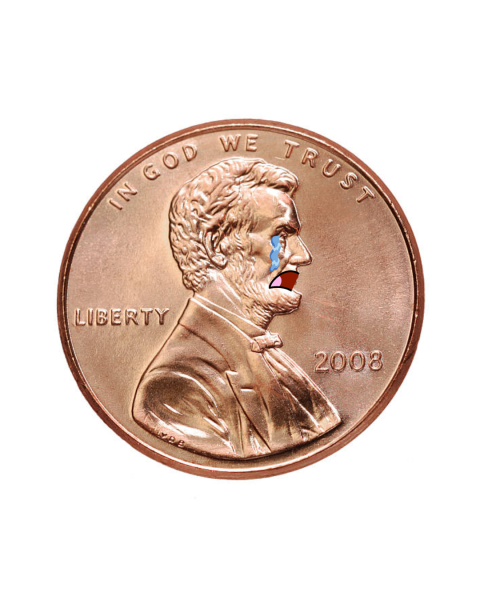It’s Time to Define “High Crimes and Misdemeanors”
On Jan. 6, thousands of rioters stormed the Capitol hoping to overturn the results of a free and fair election. When asked why, one supporter said, “Our President wants us here.”
Hundreds of supporters seemed to agree, waving flags that read “Trump 2020” and “Keep America Great!” They’d just come from a Trump rally, where the former President encouraged his supporters to be “strong” and “fight like hell.” Throughout the day, it became increasingly clear that the President of the United States incited an insurrection against the democracy he was sworn to protect.
He was swiftly impeached by the House of Representatives (again). The vote was divided by party line, with only ten Republicans voted for impeachment. The rest, however, decided that Trump’s role in the insurrection was not a ground for impeachment.
“If we impeached every politician who gave a fiery speech to a crowd of partisans, this Capitol would be deserted,” said Rep. Tom McClintock of California.
But it was not just a fiery speech. The President scheduled a rally on the day that lawmakers would certify the results of a free and fair election. Then he inspired them to stop it.
Rep. Adam Kinslinger of Illinois, one of the few Republicans supporting impeachment, said it best: “If these actions are not worthy of impeachment, what is an impeachable offense?’
Kinslinger asked the most important question of the impeachment process, one that is likely to stay relevant in the Senate trial, which is speculated to begin in two weeks. If inciting an insurrection does not qualify as a “high crime and misdemeanor,” what does? And why would the Framers even bother giving Congress the power to impeach, remove and convict a sitting President?
First, it’s important to understand why the Framers made the grounds for impeachment so broad. Experts at James’ Madison Montpelier, a museum and center for constitutional education, say that The Constitution left many aspects “intentionally vague,” because “it would have been impossible for the Framers to predict the evolution of society,” and “the gray areas provide opportunities for deliberation and debate.”
But too much of this debate is hurtful, especially in contexts like these. If we were not to impeach and convict a President for inciting a riot, the precedent for impeachment would change entirely. Future Presidents with quieter acts that pose an equal threat to our democracy may not be impeached or convicted either. The power of impeachment and removal would become meaningless. And the President would remain unchecked.
I’m not saying we should narrow the grounds for impeachment. I, too, don’t know how society is going to evolve or what plays might be made by future Presidents. I’m only suggesting that we add an amendment that specifies some examples.
As it stands now, Section 4, Article II of the Constitution reads, “The President, Vice President and all civil Officers of the United States, shall be removed from Office on Impeachment for, and Conviction of, Treason, Bribery, or other high Crimes and Misdemeanors.” I’d like to add a “such as” clause. It would sound a little like this:
The President may be impeached for…Treason, Bribery, or other high Crimes and Misdemeanors, such as violating the procedures involved in checks and balances. Such as knowingly revealing government secrets to people without classifications. Such as denying the results of a free and fair election and sending your supporters into the Capitol.
Such as inciting a riot.





jeffrey • Jul 27, 2021 at 11:20 pm
Charlotte Ive read some of your articles and we clearly stand on far sides of the same bridge called life.
I would offer some things:
The Constitution is deliberatley vague
The offices of Congress and President and Judge are by design entry level saving age and residency
The Constitution is changeable but deliberately difficult to do so erring on the side of stability of norms for decades if not centuries
Lot’s of people want to tinker with the Constitution — that’s why we don’t do it. Everyone thinks they have a better idea.
Keep up the good writing. Look Deeper. Ask and Listen to those you don’t agree with. Be Well. Love deeply. Live as you grandparents were watching!